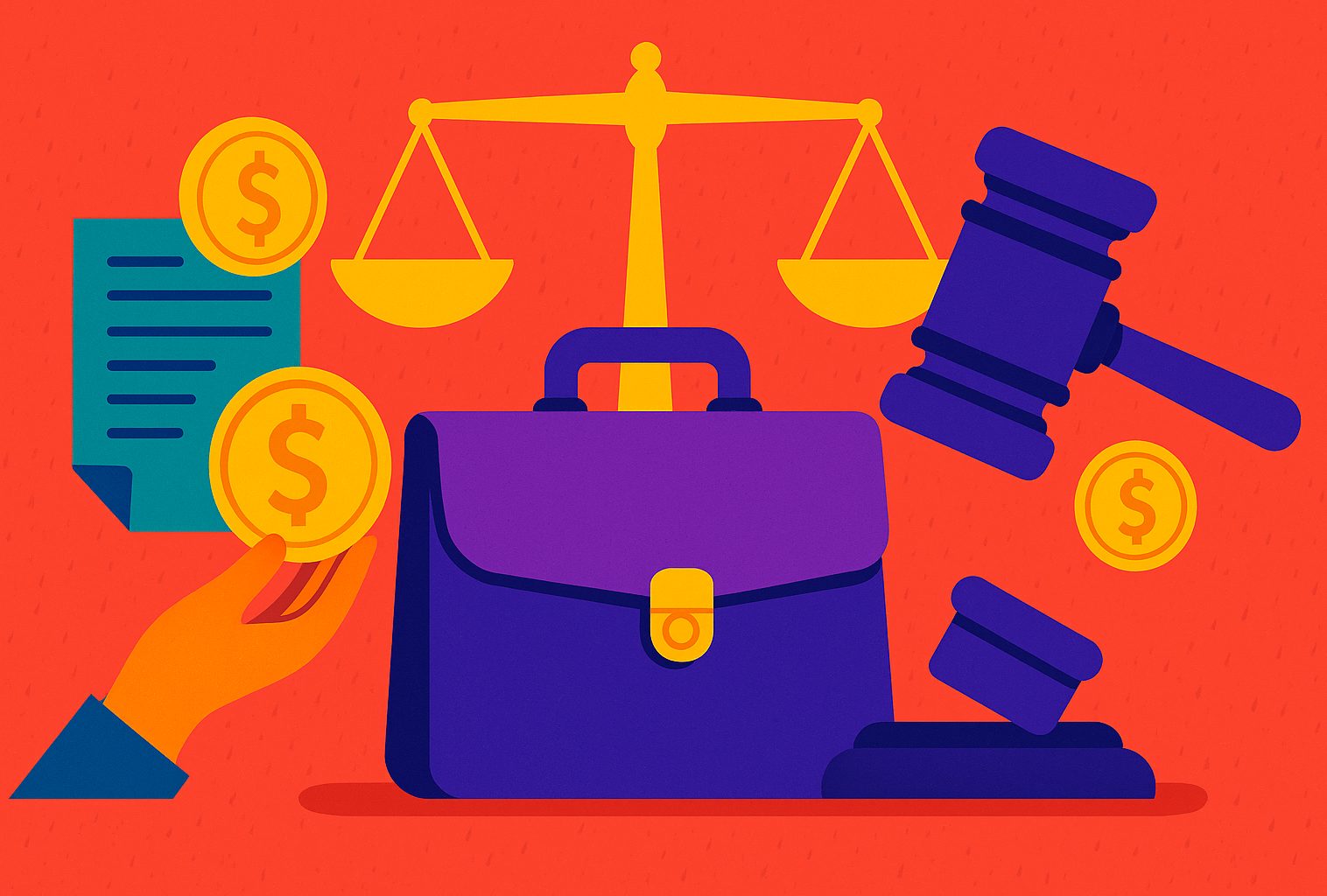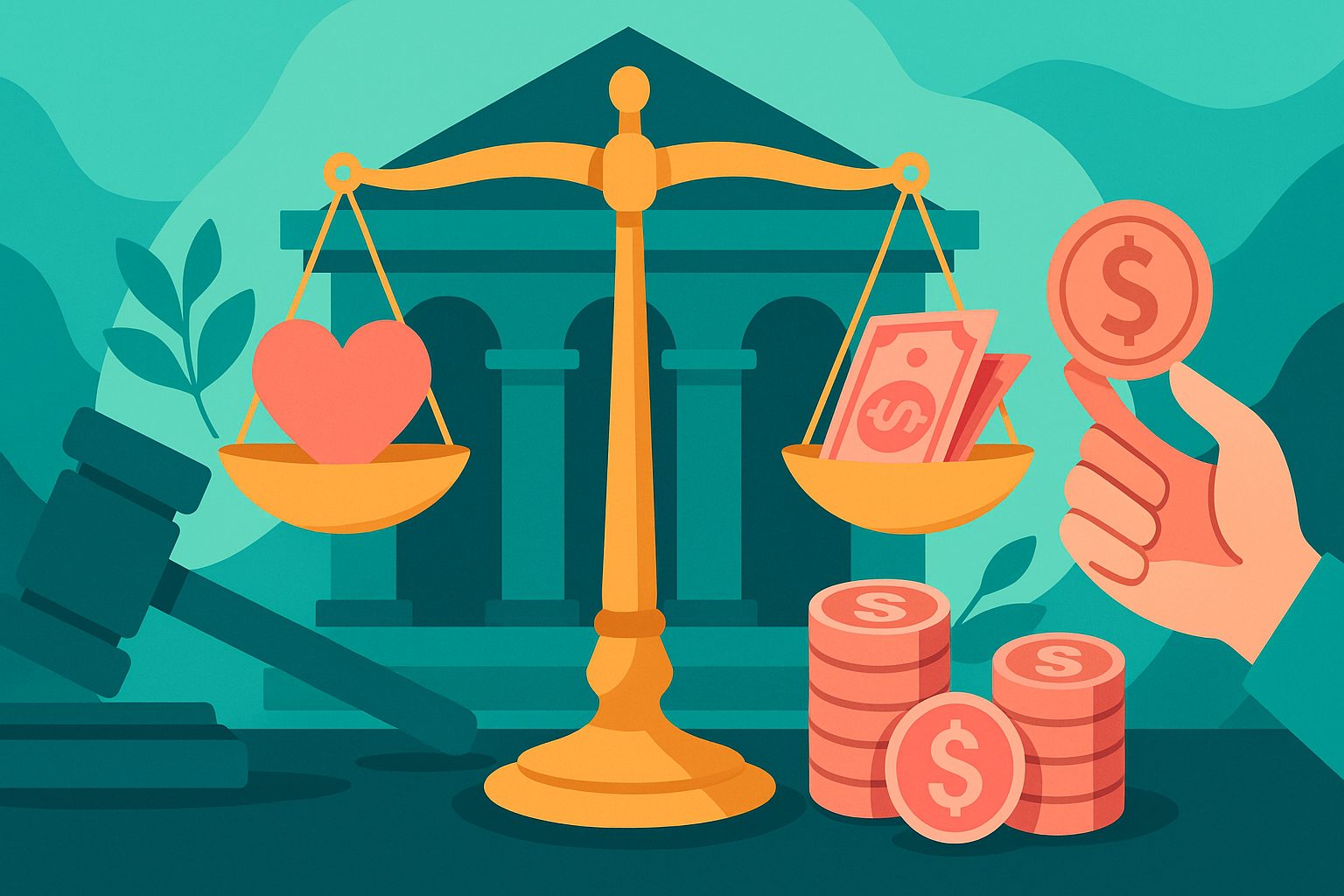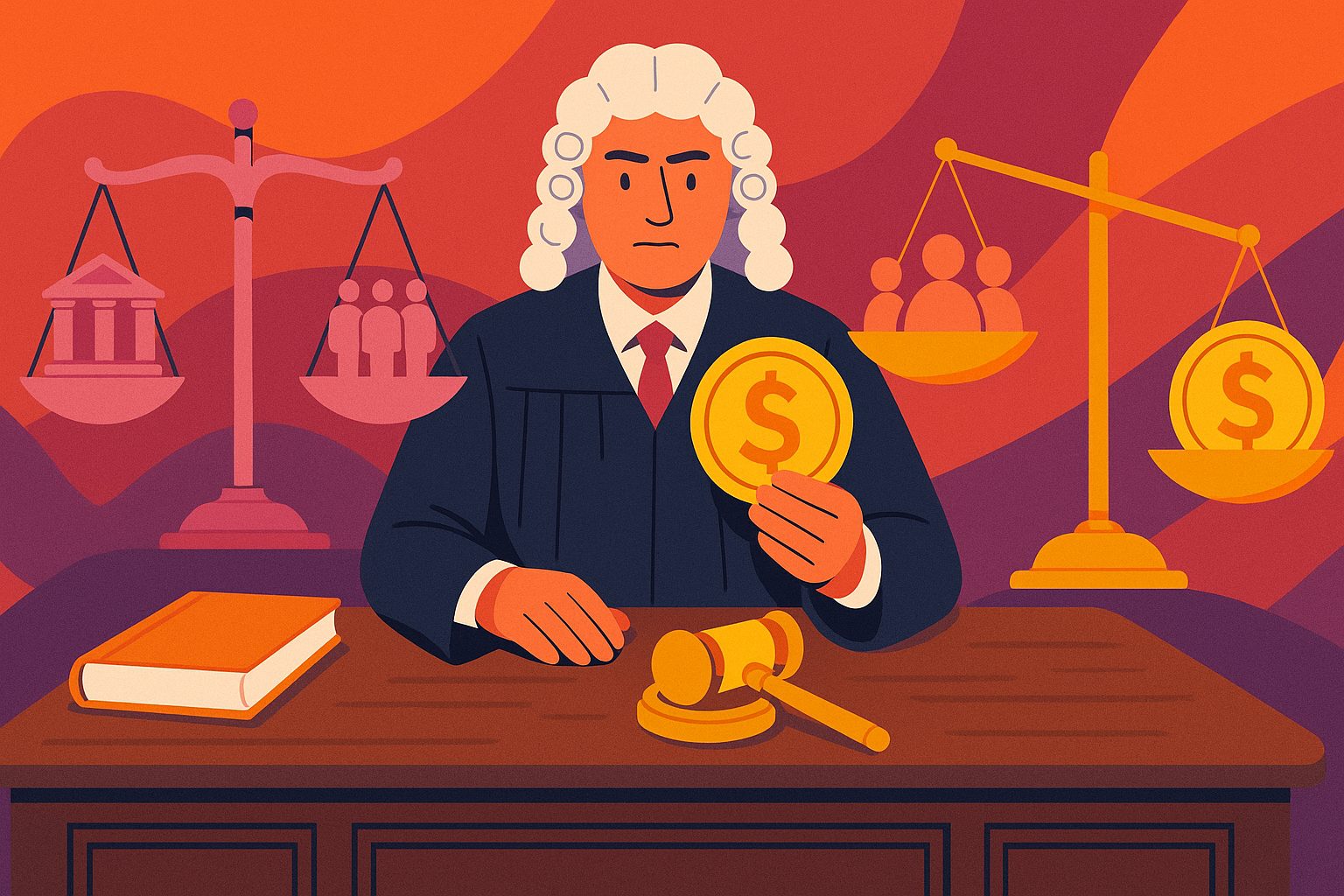Opening the Courthouse Doors: A New Way to Fund Justice
Imagine having a strong legal case but being unable to pursue it because you can’t afford the legal fees. Unfortunately, that’s the reality for many individuals and small organizations. Legal battles are expensive, slow-moving, and often heavily stacked in favor of those with deeper pockets. But a new solution is rewriting the rules—lawsuit crowdfunding. This innovative approach allows plaintiffs to raise funds from the public or private backers to cover legal expenses, and in doing so, it’s democratizing access to justice. Whether you’re a first-time litigant, a passionate supporter, or a curious investor, this beginner’s guide will introduce you to the fundamentals of funding lawsuits through crowdfunding—and how this powerful concept is changing the legal landscape forever.
Understanding the Basics: What Is Lawsuit Crowdfunding?
At its core, lawsuit crowdfunding is the practice of raising money from a group of people—usually online—to finance a legal case. It works much like other types of crowdfunding, such as raising funds for a startup or creative project, except the goal is to support legal action. These campaigns may be launched by individuals, advocacy groups, or even law firms, and the funds are used to cover everything from attorney fees and court costs to expert witnesses and document preparation. The concept taps into collective support and allows a wider audience to participate in cases they care about or believe in.
There are two primary models: donation-based and investment-based crowdfunding. In donation-based models, backers contribute money without expecting a financial return, driven by moral, political, or social convictions. Investment-based models, by contrast, treat legal cases as financial opportunities where contributors can earn a portion of any monetary award or settlement if the case succeeds. Both approaches have their place in the lawsuit crowdfunding ecosystem, offering flexibility based on the type of case, the desired outcome, and the motivation of backers.
Why People Crowdfund Lawsuits: The Driving Forces
There are many reasons someone may turn to crowdfunding to support a lawsuit. For individuals, it might be the only way to afford legal action after suffering injustice, harassment, medical malpractice, or wrongful termination. In high-profile public interest cases—like civil rights lawsuits, environmental battles, or whistleblower claims—crowdfunding becomes a way to rally community support and bring attention to broader societal issues.
For plaintiffs in commercial or intellectual property disputes, crowdfunding offers a way to level the playing field against wealthier opponents. Rather than being forced to settle due to budget constraints, a plaintiff can tap into public resources to pursue justice to its full conclusion. In all cases, lawsuit crowdfunding gives power back to those who might otherwise have been silenced.
How to Launch a Legal Crowdfunding Campaign
Starting a lawsuit crowdfunding campaign begins with choosing the right platform. There are several platforms dedicated specifically to legal crowdfunding, each with its own niche, audience, and rules. Some focus on civil rights and activism, while others cater to commercial litigation or personal injury claims. The platform will typically require a detailed case description, proof of legal representation, and often a plan for how the funds will be used.
Once the campaign is live, the key to success lies in storytelling and outreach. Potential contributors need to understand what the case is about, why it matters, and how their support will make a difference. A compelling narrative, combined with credibility and transparency, helps build trust and momentum. Updates, testimonials, and public engagement—such as media appearances or social media sharing—can turn a modest campaign into a powerful movement.
Legal Considerations Before You Crowdfund
Before diving into crowdfunding a lawsuit, there are important legal factors to consider. First and foremost is confidentiality. Attorneys and plaintiffs must be cautious not to disclose sensitive legal strategies or breach attorney-client privilege when creating public campaign content. Transparency is essential, but not at the expense of case integrity.
Next is compliance with applicable laws and ethical rules. In some jurisdictions, disclosure of third-party funding must be made to the court or opposing counsel. Attorneys are generally prohibited from letting funders influence litigation decisions, and any financial arrangement involving funder returns must be clearly defined and legally sound. Consulting with an attorney before launching a campaign ensures these issues are addressed up front.
Finally, in investment-based crowdfunding models, regulatory compliance becomes even more complex. Securities laws may apply if the funders are promised a return, especially when they are treated as investors. Platforms that facilitate these types of campaigns often work with legal counsel to structure the offerings in a compliant way, but plaintiffs and funders alike should perform due diligence.
The Role of Litigation Funding Platforms
Crowdfunding platforms play a crucial role in the success of lawsuit fundraising efforts. Beyond simply hosting campaigns, many provide tools to assess the merits of cases, help with legal vetting, and even manage fund disbursement. Some platforms operate with strict standards, accepting only cases that have passed initial legal review or show strong potential for impact. Others are open to a broader range of claims and rely more on the crowd to decide what’s worthy of support.
For users, platform selection is essential. Reputable platforms offer transparency about fees, funder protections, campaign requirements, and dispute resolution policies. They often act as intermediaries, holding funds in escrow and releasing them only when verified expenses arise. Choosing the right platform can enhance campaign visibility, improve legal credibility, and reduce administrative burdens.
Who Contributes—and Why It Matters
Contributors to lawsuit crowdfunding campaigns come from all walks of life. Some are friends, family members, or community allies who want to show personal support. Others are strangers drawn in by the story or cause. In public interest or advocacy-driven cases, contributors may be motivated by shared values, a desire to challenge injustice, or a belief in systemic change.
In investment-oriented models, contributors—often called litigation funders—are motivated by potential financial returns. These backers look for strong legal merits, experienced attorneys, and high-value damages. They analyze risk, seek legal opinions, and often prefer cases with clear commercial claims. Regardless of motivation, all funders benefit from platforms that provide regular updates and clear communication about the progress of the case.
Risks and Rewards: What Funders Need to Know
Contributing to a legal crowdfunding campaign carries risks. Lawsuits are unpredictable by nature. Even cases with strong evidence and compelling arguments can falter due to legal technicalities, procedural setbacks, or jury decisions. For donors, the risk is simple: they may not see the outcome they hoped for. For investors, the financial risk is greater. If the case loses, they may lose all of their investment.
But the potential rewards are equally compelling. For donors, the reward is supporting justice, empowering voices, and playing a role in social change. For investors, successful cases can yield substantial returns, particularly in commercial claims or large-scale settlements. Understanding these risks and rewards—and investing or donating accordingly—is essential for responsible participation.
Crowdfunding in Practice: Real-World Success Stories
Over the past few years, litigation crowdfunding has enabled powerful victories in courtrooms around the world. In civil rights cases, community-funded lawsuits have challenged unlawful arrests, voter suppression, and police misconduct. In environmental law, crowdfunded legal teams have fought multinational corporations accused of pollution and ecological harm. In the corporate arena, small businesses have used litigation funding to pursue intellectual property claims that would have otherwise been out of reach.
These stories illustrate the transformative power of crowdfunding. They show how individuals and groups can use collective action to shift legal outcomes, pressure institutions, and reclaim agency in complex systems. Every campaign begins with a single story—and when that story resonates, it can move mountains.
What Lawyers Think About Crowdfunding
The legal profession’s view of crowdfunding is evolving. While some attorneys remain cautious—especially when it comes to ethical boundaries and funder influence—many are beginning to see the benefits. Crowdfunding offers a solution for clients who have strong cases but lack the means to pursue them. It also gives lawyers the opportunity to take on meaningful work without the financial constraints of traditional fee structures.
Attorneys who work with crowdfunding platforms must be transparent, ethical, and communicative. They must protect their client’s interests while ensuring that funders understand the terms of their involvement. When handled correctly, crowdfunding becomes a tool for both justice and sustainability in legal practice.
The Future of Lawsuit Crowdfunding
As legal crowdfunding continues to grow, its influence on the justice system will only expand. New technologies—such as blockchain, smart contracts, and decentralized finance—may further streamline the funding process, increase transparency, and allow for global participation. Platforms may begin to integrate more legal analytics, predictive modeling, and AI-driven case assessment tools to help funders and litigants make more informed decisions.
Regulatory frameworks will likely become more standardized, especially as investment-based models attract greater scrutiny. The line between philanthropy and financial participation will be more clearly defined, and ethical best practices will be codified across jurisdictions. Education—both for funders and plaintiffs—will play a central role in ensuring that crowdfunding remains a fair and effective tool for legal empowerment.
Final Reflections: Crowdfunding Justice, One Case at a Time
Crowdfunding lawsuits is about more than raising money. It’s about shifting power. It’s about allowing everyday people to access a system that has too often been the domain of corporations, governments, and the wealthy. It’s about turning stories into movements, rights into action, and legal claims into collective missions.
For those new to this world, the opportunity is enormous. Whether you’re funding your own case, supporting someone else’s, or exploring litigation as an investment, the tools are now in your hands. By understanding the process, respecting the risks, and embracing the potential, you can be part of a new chapter in justice—one written by the many, not the few.
Lawsuit crowdfunding isn’t just a legal innovation—it’s a social revolution. And it’s only just getting started.




